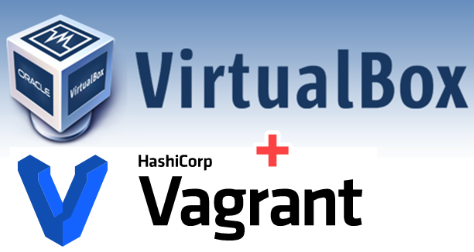
I had a little bit of VirtualBox and Vagrant drama today.
I was doing my normal thing of recreating some test VMs and I started to get errors like this during the first part of the VM build, before the config scripts ran.
==> default: Machine booted and ready! Got different reports about installed GuestAdditions version: Virtualbox on your host claims: VBoxService inside the vm claims: 6.1.12 Going on, assuming VBoxService is correct… [default] GuestAdditions seems to be installed (6.1.12) correctly, but not running. Got different reports about installed GuestAdditions version: Virtualbox on your host claims: VBoxService inside the vm claims: 6.1.12 Going on, assuming VBoxService is correct… Redirecting to /bin/systemctl start vboxadd.service Job for vboxadd.service failed because the control process exited with error code. See "systemctl status vboxadd.service" and "journalctl -xe" for details. Redirecting to /bin/systemctl start vboxadd-service.service Job for vboxadd-service.service failed because the control process exited with error code. See "systemctl status vboxadd-service.service" and "journalctl -xe" for details. Got different reports about installed GuestAdditions version: Virtualbox on your host claims: VBoxService inside the vm claims: 6.1.12 Going on, assuming VBoxService is correct… VirtualBox Guest Additions: Starting. VirtualBox Guest Additions: Building the VirtualBox Guest Additions kernel modules. This may take a while. VirtualBox Guest Additions: To build modules for other installed kernels, run VirtualBox Guest Additions: /sbin/rcvboxadd quicksetup VirtualBox Guest Additions: or VirtualBox Guest Additions: /sbin/rcvboxadd quicksetup all VirtualBox Guest Additions: Kernel headers not found for target kernel 5.4.17-2011.5.3.el8uek.x86_64. Please install them and execute /sbin/rcvboxadd setup ValueError: File context for /opt/VBoxGuestAdditions-6.1.12/other/mount.vboxsf already defined modprobe vboxguest failed The log file /var/log/vboxadd-setup.log may contain further information. ==> default: Checking for guest additions in VM… default: No guest additions were detected on the base box for this VM! Guest default: additions are required for forwarded ports, shared folders, host only default: networking, and more. If SSH fails on this machine, please install default: the guest additions and repackage the box to continue. default: default: This is not an error message; everything may continue to work properly, default: in which case you may ignore this message. The following SSH command responded with a non-zero exit status. Vagrant assumes that this means the command failed! /usr/sbin/rcvboxadd setup Stdout from the command: VirtualBox Guest Additions: Starting. VirtualBox Guest Additions: Building the VirtualBox Guest Additions kernel modules. This may take a while. VirtualBox Guest Additions: To build modules for other installed kernels, run VirtualBox Guest Additions: /sbin/rcvboxadd quicksetup VirtualBox Guest Additions: or VirtualBox Guest Additions: /sbin/rcvboxadd quicksetup all VirtualBox Guest Additions: Kernel headers not found for target kernel 5.4.17-2011.5.3.el8uek.x86_64. Please install them and execute /sbin/rcvboxadd setup Stderr from the command: ValueError: File context for /opt/VBoxGuestAdditions-6.1.12/other/mount.vboxsf already defined modprobe vboxguest failed The log file /var/log/vboxadd-setup.log may contain further information.
The VM had booted, but because the guest additions weren’t working it couldn’t mount the shared folders, so none of the setup scripts had run.
Reading the output I figured the kernel-uek-devel package was missing from the Vagrant box, so I did the following…
I connected to the VM, installed the “kernel-uek-devel” package and exited from the VM.
vagrant ssh sudo dnf install -y kernel-uek-devel exit
Then I restarted the VM.
vagrant halt
vagrant up
During this second startup of the VM the problem kernel module was rebuilt, and the rest of the configuration steps ran the way you would expect from a normal first-time startup.
One of the issues about using someone else’s Vagrant box is you are at the mercy of what they decide to do with it. In this case I was using the ‘bento/oracle-8’ Vagrant box, which was built using Oracle Linux 8.2 with UEK 6, but the installed guest additions were not happy, and the packages were not present to allow the kernel module to be rebuilt on the fly.
If you are trying to use my Vagrant builds, which mostly use the ‘bento/oracle-8’ Vagrant box, and you are getting this type of issue, now you know what to do about it. Hopefully the next release of this Vagrant box will be less problematic.
Cheers
Tim…
Update: I spent some time figuring out Packer, and now I’ve switched all my OL8 builds to use my own image called ‘oraclebase/oracle-8’.


